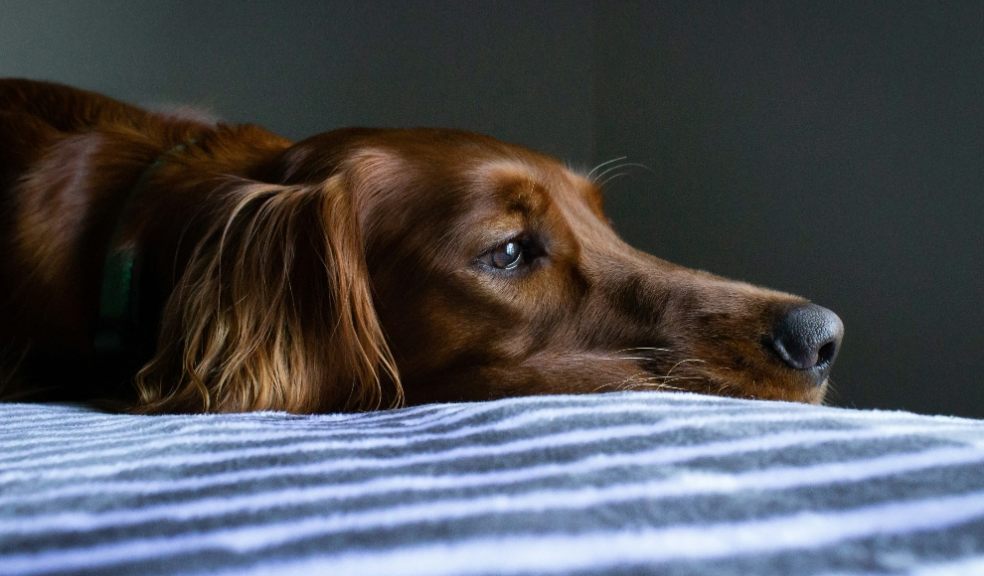
Keep your pooch safe from the winter chill
Brits are being urged to consider their dog’s comfort and safety in these chilly winter temperatures.
Pet insurance experts from Quotezone.co.uk are being urged to follow top ten tips to keep their four-legged friends warm and healthy.
Following extremely low temperatures and storms causing strong winds, pets across the country are feeling the chill.
No dog owner wants their beloved animal to suffer. Although they might not be showing signs of discomfort, dogs are affected by the cold as much as humans.
Some breeds will feel the cold more than others, especially those with a shorter or finer coat.
Body language and behaviour can help to distinguish whether they are feeling the cold. Look out for shivering or trembling, continuous whining or barking, a hunched posture, curling up into a ball and signs of weakness or lethargy.
The cold can impact older dogs more severely, having an impact on their joints. Check for signs of soreness or stiffness when they move.
Greg Wilson, Founder and CEO of price comparison site Quotezone.co.uk said: “We are a nation who love our pets. Most homes in the country have a dog, cat or other furry friend, but many don’t realise the best ways to ensure their comfort and safety during chilly or turbulent weather.
“Our cold temperatures can have a negative impact on our beloved animals, even if they are inside full time.
“Unpredictable drops in the temperature can lead to our dogs shivering, trembling, feeling weak or over tired. Taking steps to improve your dog’s comfort levels during the winter is very important.
“Simple hacks like keeping them dry, elevating their bed and cutting down on grooming can make all the difference to your dog’s health and happiness this winter. With more cold weather on the way, make sure to keep an eye out for unusual behaviour.
“It is also important to protect them from certain human winter hacks such as de-icing and gritting the roads. Remember to wash your dog's paws after each walk, especially if there is grit on the roads around your home, as it is actually toxic for pets. Same for anti-freeze, make sure you don’t use it anywhere near your pet and store it out of reach as it is highly poisonous.”
1.Toxic grit
The rock salt in grit used on the roads and footpaths during winter is actually toxic to dogs, make sure to wash their paws and stomach straight after each walk or it can start to irritate the skin – if they start to lick their paws clean themselves there’s a risk of gut irritation and hypercalcaemia.
2.Keep them dry
If you return home with a muddy pup after a long winter walk, make sure to dry them off as quickly as possible after bathing. Their internal temperature will have dropped outside and again once they come out of their bath. Make sure they are thoroughly dry and warm to avoid trembling and shivering.
3.Avoid anti-freeze
Anti-freeze is highly poisonous to dogs so be very careful when and where you use it and keep it well away from pets, who have been known to think it’s rather tasty.
4.Winter fashion
Your dog’s coat is a natural protector against the colder temperatures. During the winter months, allow their fur coat to grow slightly longer between grooming sessions. Also add an extra coat or jumper for particularly cold or wet walkies – ideally with reflective strips to help increase visibility on the darker nights.
5.Heated dog bowls
Making sure your dog gets their daily essential nutrients is really important in winter, but food left in bowls on the floor can be cold and unappetising to dogs who are feeling the chill. Make their food more enticing by placing it in warmed up bowls.
6.Use rugs where possible
Dogs with shorter legs are closer to the ground and can get colder quickly from hard floors and tiles. Where possible, place down rugs or blankets to avoid too much contact between smaller dogs and cold floors.
7.Elevate their bed
To keep your dog warm and cosy throughout the night, elevate their bed off the floor. If you have lots of hard flooring in your home, consider letting your dog sleep in your bedroom in their bed or a crate. The room will be much warmer and help them stay comfortable throughout the night.
8.Watch out for ice
Outdoor elements during the winter, like snow and ice, can hurt their paws. Their pads can become scratched, chapped or cracked. Make sure to keep an eye on the elements and consider canine boots if regular snowfall is forecasted. It may also be safer to keep your pup on the leash as snow and frost can hide potential dangers.
9.Blankets
Heated blankets are a great way to keep your pooch warm and cosy. However, a more cost-effective way to keep them warm is to grab your warmest blankets and create a ring or donut shape in their bed so they can curl up in the middle. This will help to keep in the warmth.
10.Eliminate drafts
Check your home for cool drafts, through windows or doors. Heated blankets, elevated beds and rugs will only work so hard to keep your dog warm if you have constant cold breezes coming in from the outside – simple draft excluders for under the doors can be bought for as little as £5.
If you’re worried about your dog, most insurance providers now have a 24/7 vet helpline for any queries or concerns – so it’s worth double checking your policy now and adding the phone number to your contacts just in case.












